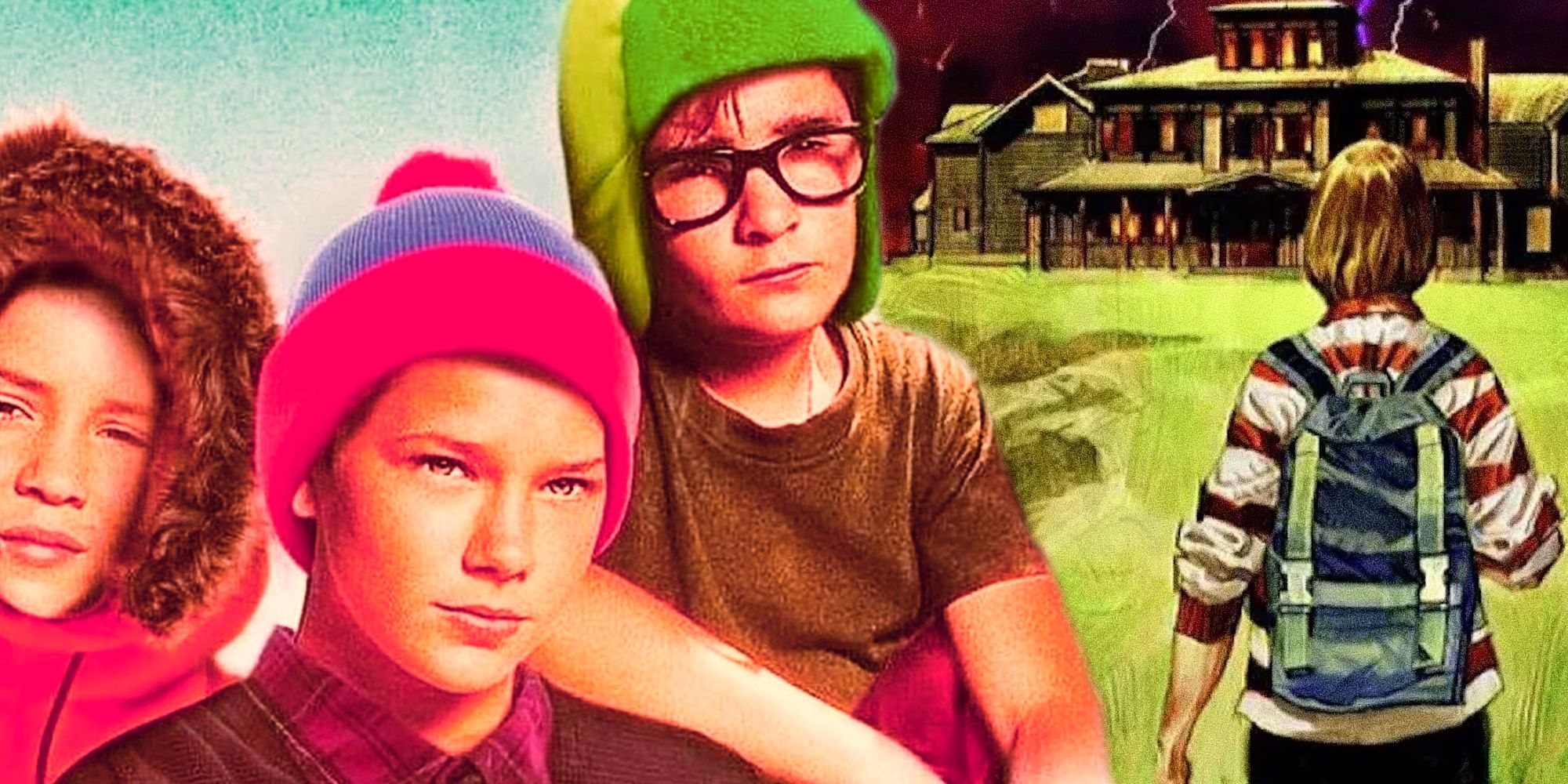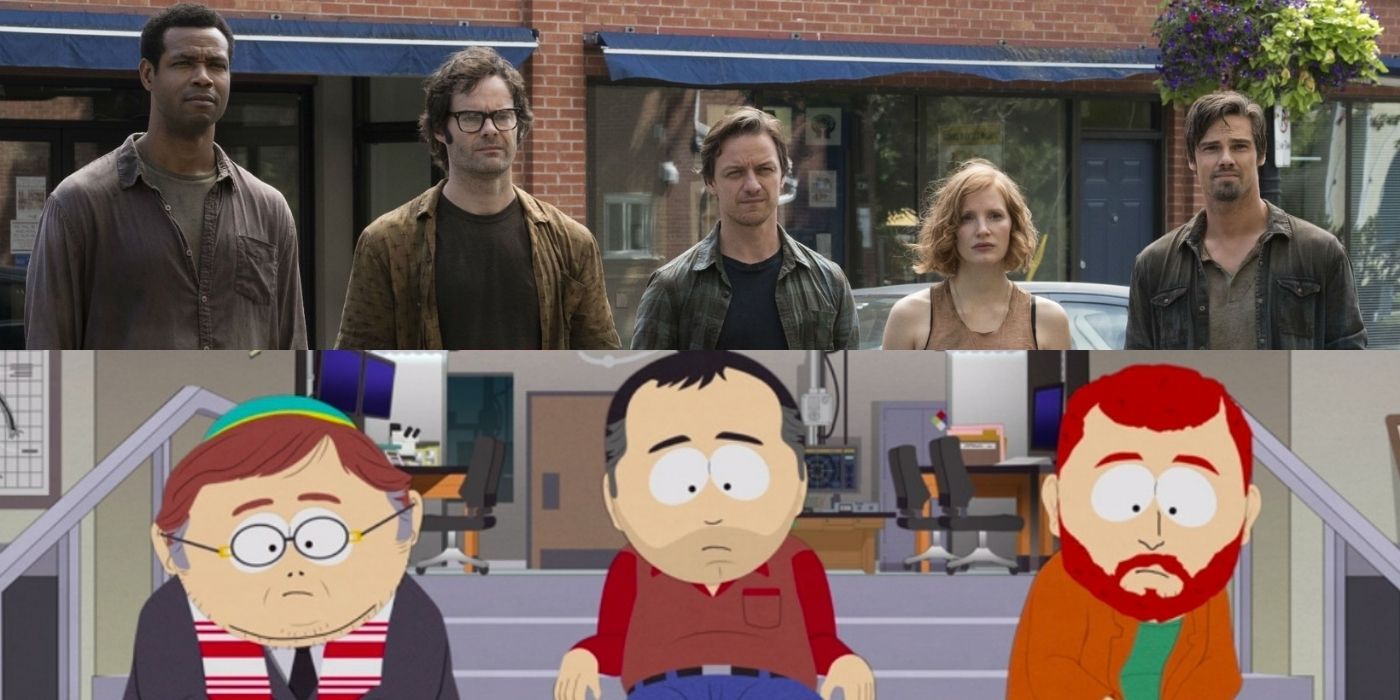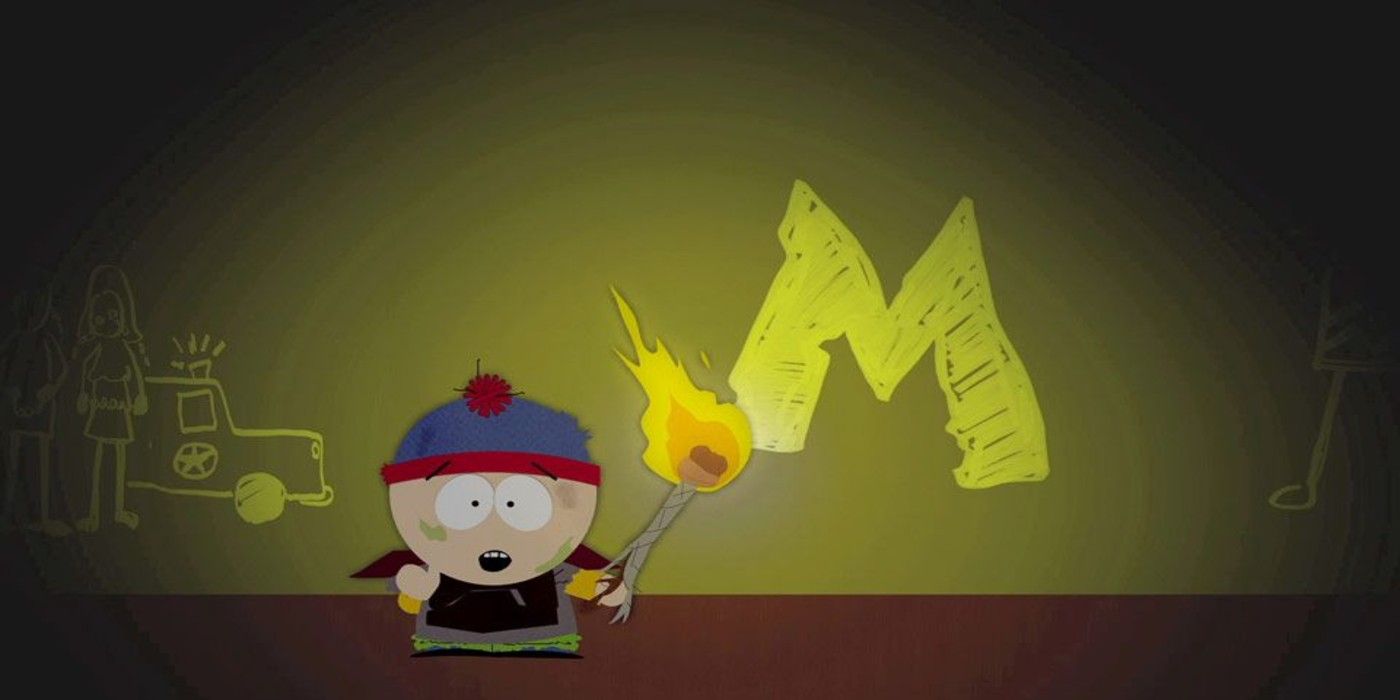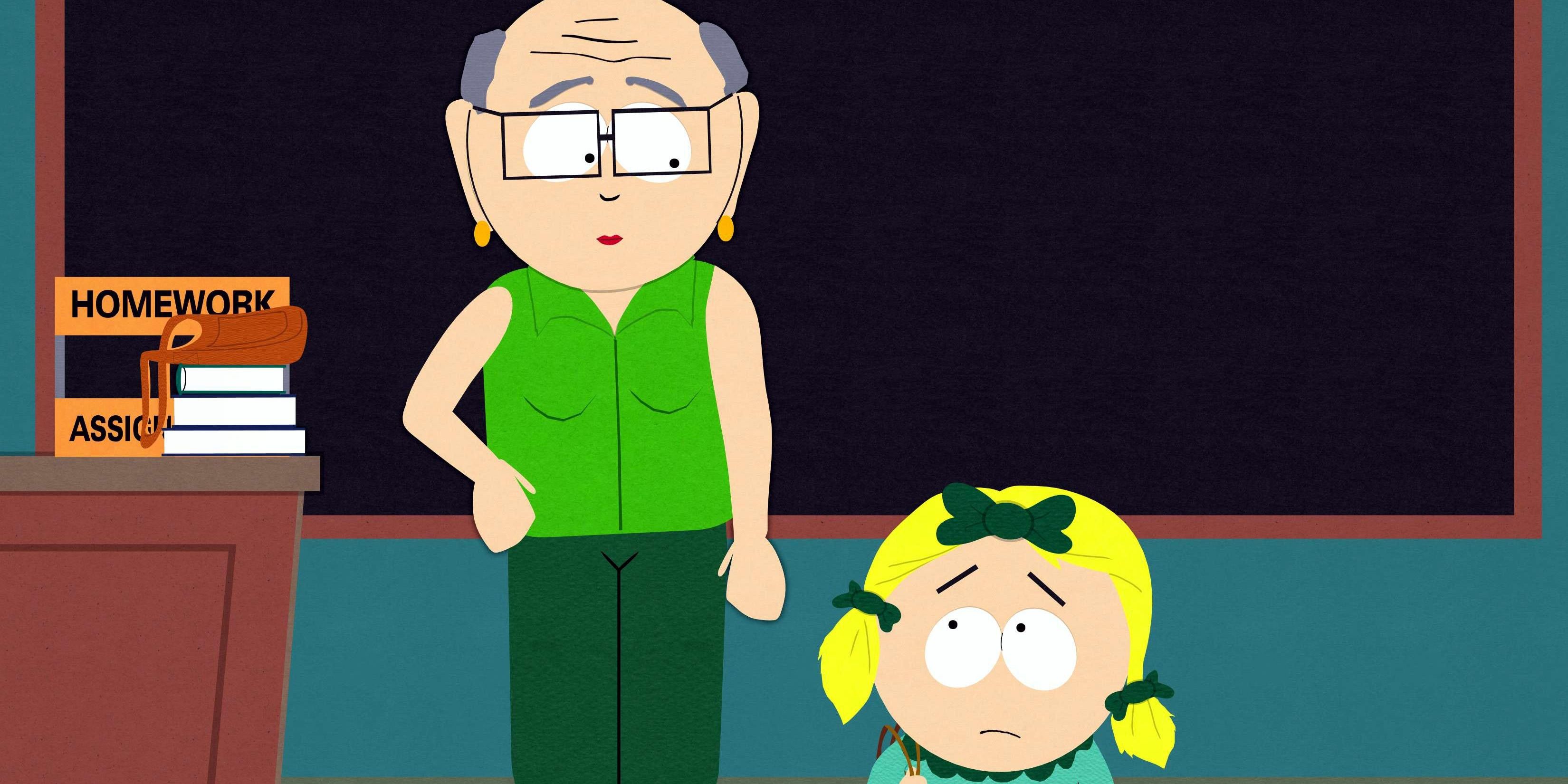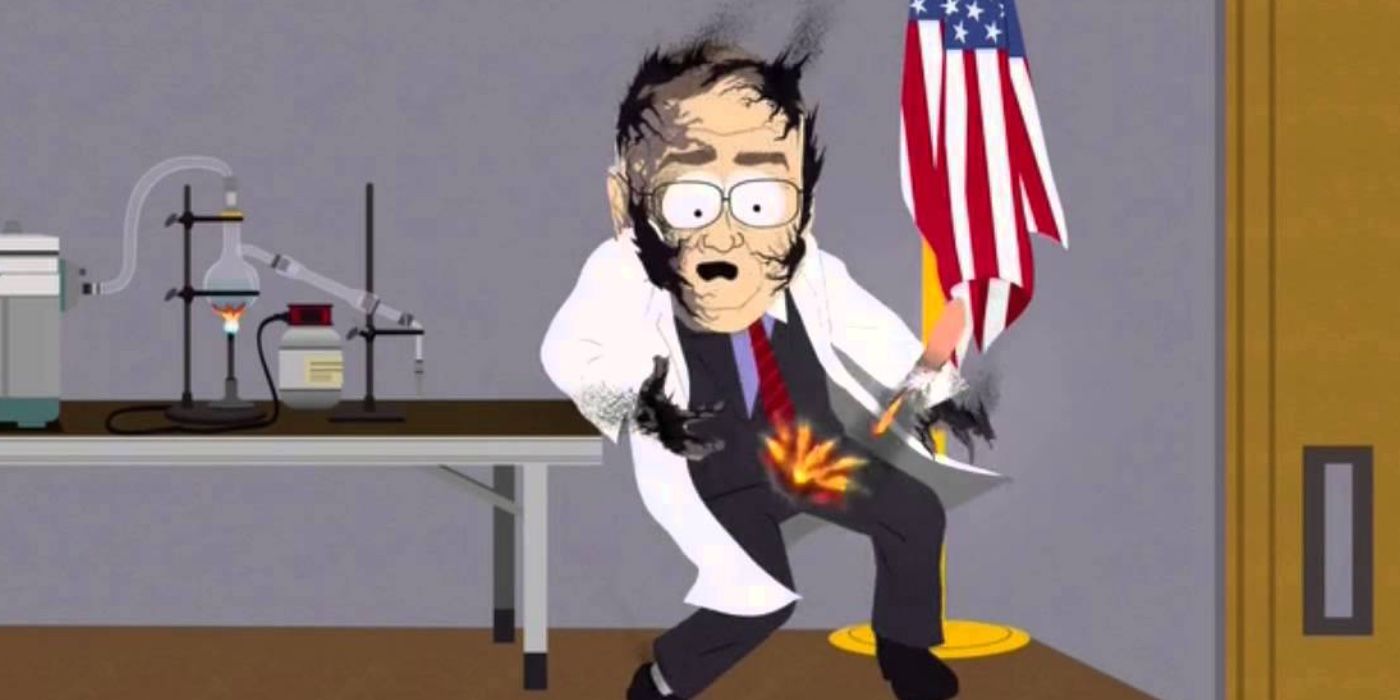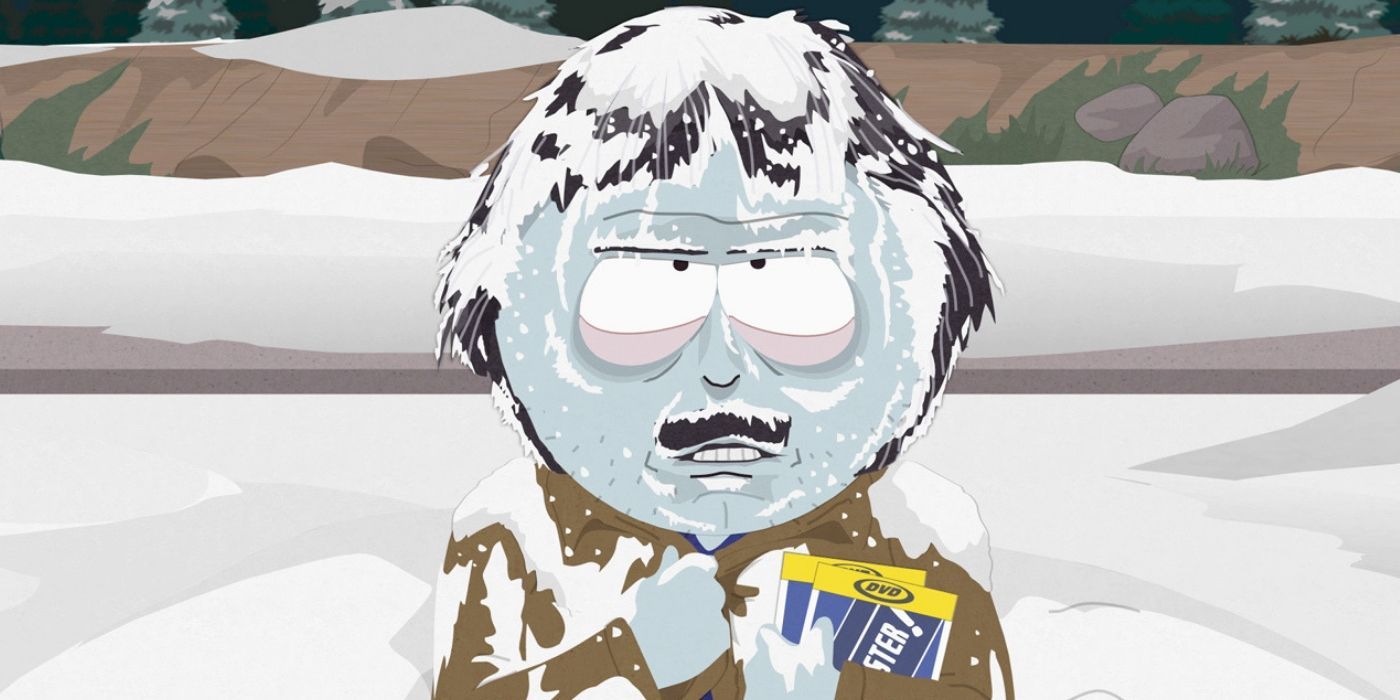Over the show’s 25 seasons, South Park has referenced the works of Stephen King numerous times, showing an enduring affection for the horror icon’s work. Since its inception, South Park has never been afraid to parody various topics. No subject is safe from ridicule in the ribald adult animated comedy, as proven by South Park season 25’s spoofs of everything from gentrification to St. Patricks' Day.
In particular, movie parodies have always been a reliable source for South Park’s anarchic comedy. Over the years, South Park has spoofed all manner of famous movies, although the works of horror author Stephen King seem to be of particular interest to the show’s writers. South Park has parodied King’s writing at least half a dozen times, with the show’s spoofs ranging from throwaway references to entire episodes spent comedically recreating the author’s stories.
South Park’s earliest Stephen King parody dates back to the show’s first season, which poked fun at Stephen King's Pet Sematary. Since then, South Park has spoofed Children of the Corn, The Stand, It, and The Shining, as well as bringing back their Pet Sematary spoof on more than one occasion. South Park’s preoccupation with parodying King is likely rooted in the fact that the author’s works are dark horror stories that lend themselves to animated spoofs. It is easy for South Park to re-contextualize serious elements of King’s stories for comedy, whether this means turning the horrifying killer clown Pennywise into an attention-seeking parody of Donald Trump or repurposing The Stand’s saccharine Mother Abigail into the famous face of a sugary confection brand.
It/It: Chapter Two—"Splatty Tomato," "Post-Covid: The Return of Covid"
“Splatty Tomato” (season 21, episode 10) depicts President Garrison as a Pennywise-Esque figure, as well as spoofing Stranger Things and misguided 80s nostalgia in general. Much like Pennywise, President Garrison appears to the children of South Park in menacing visions. Yet, unlike Pennywise, these appearances see him desperately inquire about his approval rating, mocking former President Trump's apparent insecurity around his popularity with the public. The episode also spoofs Stephen King’s It via the movie’s nostalgia for 80s pop culture, with the kids of South Park listening to a compilation of 80s hits and failing to see the appeal of the decade’s cornier pop songs. However, this was not the last time that South Park parodied It. 2021’s "Post-Covid: The Return of Covid" features a few subtle nods to the Stephen King bestseller too: such as Jimmy becoming a successful stand-up comedian who overcame his stutter a la Richie Tozier in It: Chapter Two (who, oddly enough, was played by former South Park contributor Bill Hader).
Children of the Corn—"The Wacky Molestation Adventure"
Some of South Park’s Stephen King nods are blink-and-you’ll-miss-it gags aimed at the writer’s super fans, but South Park season 4, episode 16, "The Wacky Molestation Adventure," is almost entirely dedicated to spoofing one specific King adaptation. The episode’s plot is essentially a recreation of 1984's largely forgotten Children of the Corn, with a pair of adults accidentally entering the titular town and finding the place empty save for tribes of feral children. The only major change, as the episode’s title implies, is the fact that the kids of South Park got rid of their parents via accusations of “molester-ing” rather than killing them like the lethal offspring of Children of the Corn's plothole-ridden movie adaptation. Other than that, the episode is a direct homage, right down to Cartman’s quote, “Outlander! We have your woman!” Luckily for the kids of South Park, though, their parents are safely returned before the episode’s end.
Pet Sematary—"Marjorine," "Asspen," "Spookyfish" (& More)
“Marjorine” is an absurd South Park episode during which Butters pretends to be the eponymous new girl to discover whether the girls in his class have invented a device that can tell the future. This plan involves him faking his death, thus prompting a subplot where a taciturn farmer shows the distraught child’s parents how to revive him via a cursed cemetery. It’s a beat-for-beat parody of the character Jud Crandall's subplot in Pet Sematary, save that the child in question from Stephen King's original story is really dead. This isn’t the first time the Judd Crandall parody appears in South Park, either. This same stock King spoof can be found in episodes like “Asspen," which parodies inspirational 80s teen movies, and "Spookyfish," which takes on the haunted burial ground horror cliche more broadly.
The Stand—“Gluten-Free Ebola”
“Gluten-Free Ebola” sees Cartman, dismayed by an increasingly gluten-free world, having prophetic dreams like those guiding The Stand’s hero Stu to Mother Abigail. Of course, since this is South Park and the dreams belong to Cartman, he is instead being advised by syrup mascot Aunt Jemima. Although The Stand received a 2020 miniseries, this is one of the more obscure Stephen King nods featured on the show. Due to the book’s massive page count and sprawling story, The Stand has only been realized on-screen as a pair of miniseries and never as a movie, meaning the popular novel never gained as much pop culture clout as the likes of The Shining, Pet Sematary, and It.
The Shining—“Nightmare On FaceTime”
South Park's 2012 Halloween special “Nightmare On FaceTime” is an extended parody of The Shining, arguably King’s most famous movie adaptation to date. Although South Park’s spoof isn’t quite as faithful to the movie as The Simpsons’ "Treehouse of Horror" segment parodying the Stanley Kubrick’s The Shining, “Nightmare On Face Time” still mines a lot of comedic potential out of Randy Marsh purchasing a Blockbuster video franchise just as the era of DVD rentals came to a quiet end and the company went under. This results in Randy slowly losing his mind as the promised customers fail to materialize, and isolation drives him to heinous acts despite being able to leave the store at any time. Randy’s Jack Torrance-Esque death at the end of "Nightmare On Facetime" might be the most explicit nod to Stephen King’s back catalog that South Park has ever made, but it’s far from the only reference to the horror legend on the series.

